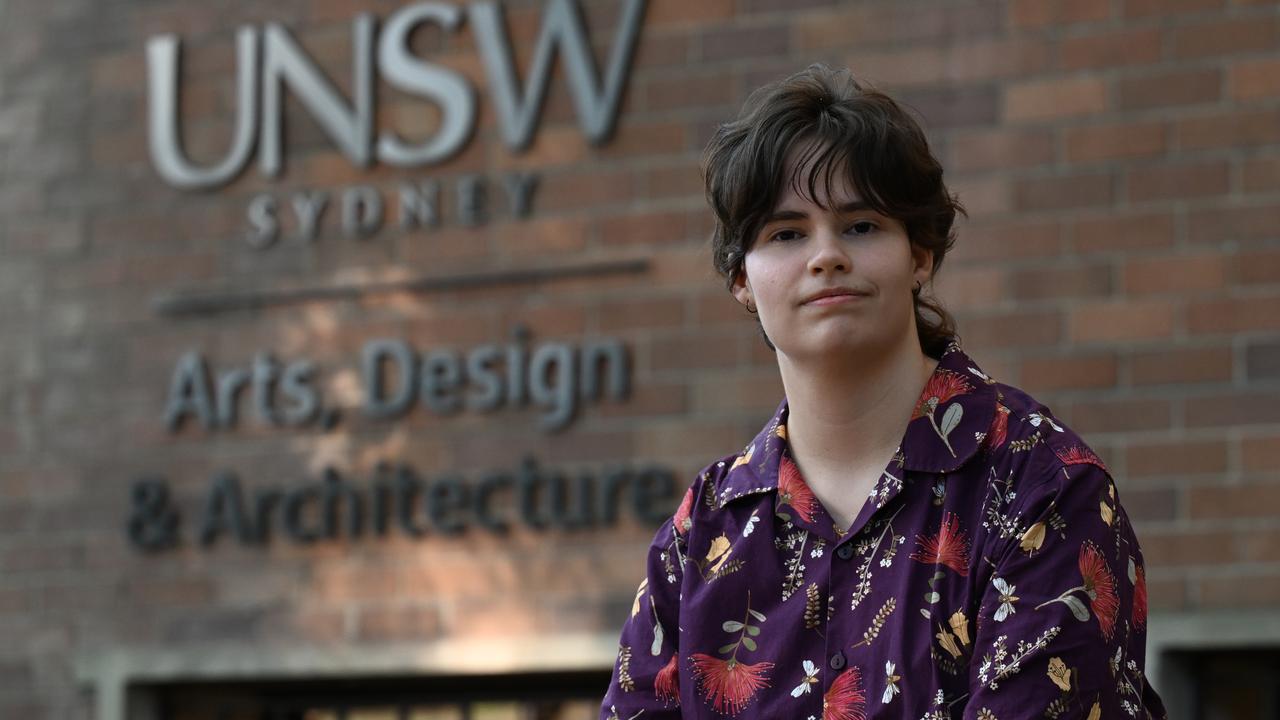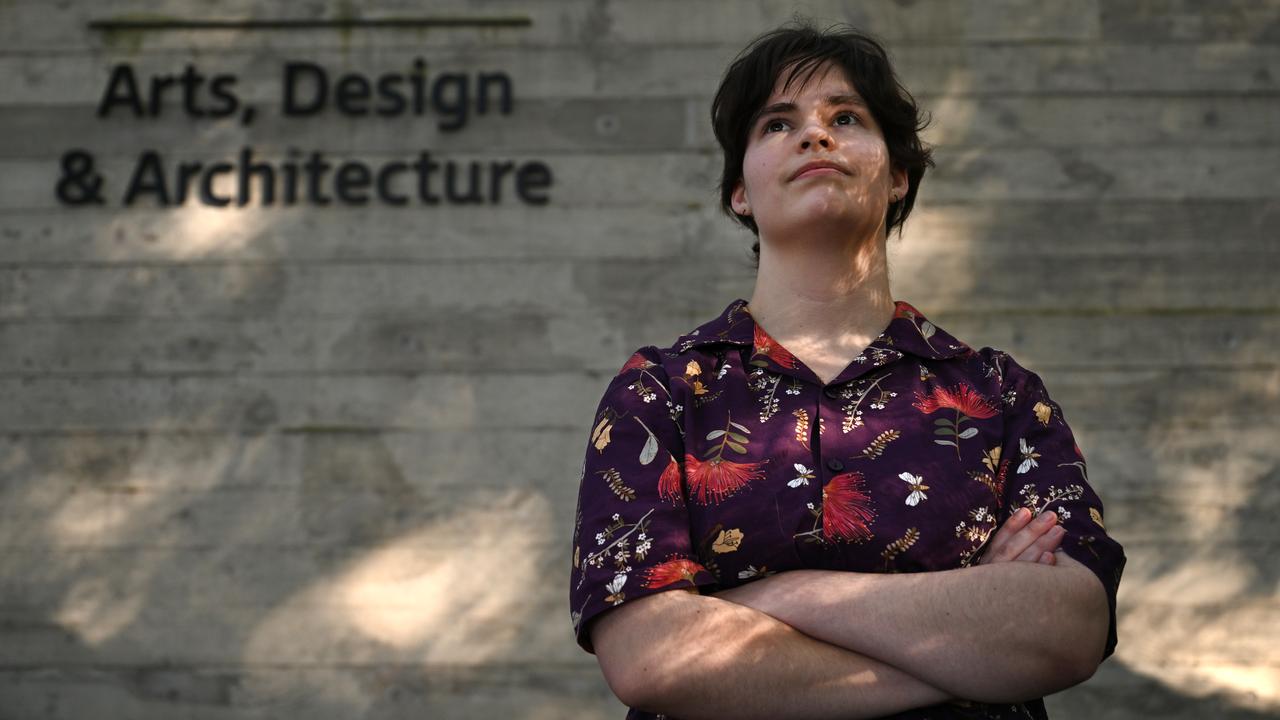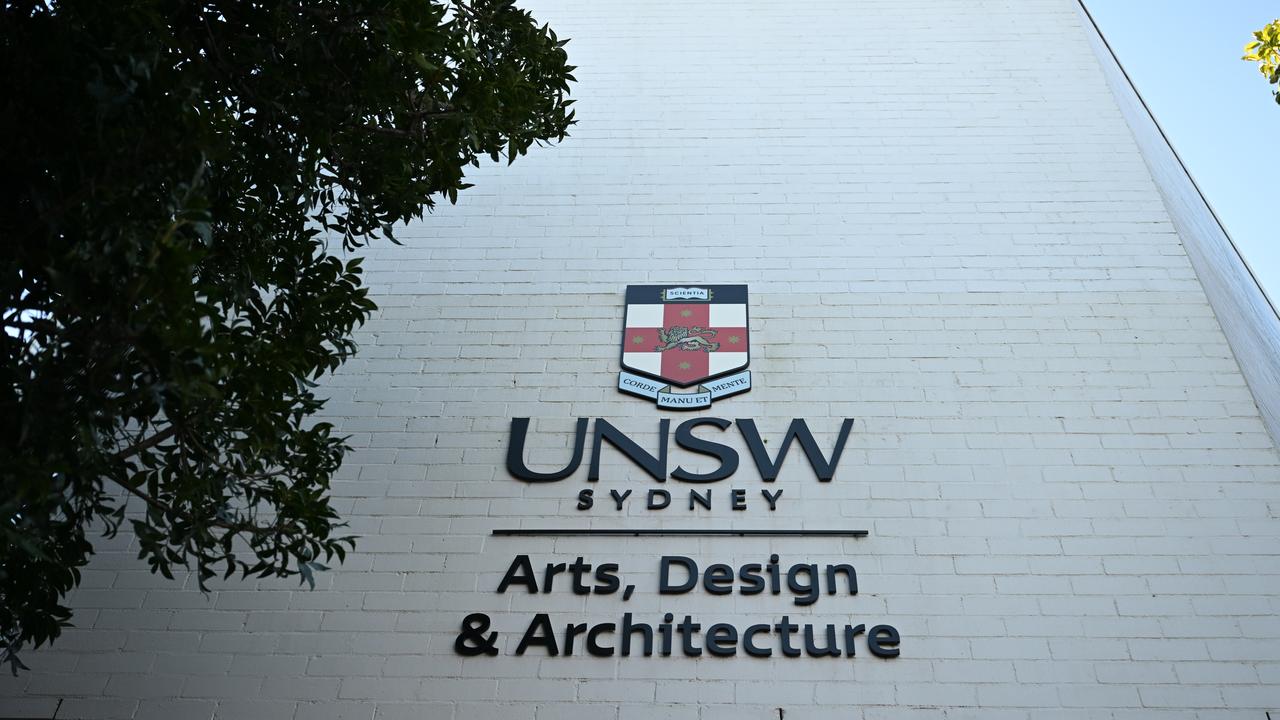
Fine arts students are campaigning against a university subject teaching them how to use artificial intelligence to make artworks.
The University of NSW is running the course Generative AI for Artists in September, covering the use of artificial intelligence to make image, text, sound, video and three-dimensional artworks.
It also promises to critically examine the use of AI in art, including debates about artists' moral rights, copyright, data and energy use.

Robin Chessell, 22, is in the final year of a double degree in fine arts and secondary education and has launched a petition that has so far garnered about 500 signatures calling for the subject to be cancelled.
"I think a lot of students, especially on the art campus but even people who have no background in art whatsoever, are very concerned about AI," they said.
One signatory to the petition said AI could not create anything new, "it can only corrupt and ruin".
"This is absolutely messed up. Generative AI is a plagiarism machine that sucks the soul out of art ... I'm incredibly disappointed in UNSW," said another.
Artificial Intelligence is generally trained to generate content using vast amounts of data, scooping up the work of writers and artists who in many cases, have not given their consent for its use.

The technology can be used to produce disinformation, propaganda and pornography and also consumes massive amounts of electricity and water to run its servers.
The course is being taught by Associate Professor Oliver Bown, who has been researching generative art for more than 20 years.
He broadly agrees with the students' concerns about the impacts of AI, but says that's no reason to cancel the subject.
"We're a university, we want to encourage free thinking, open debate, and therefore the very idea of shutting down a course because it's about generative AI doesn't sit right with me," he said.
"But many of the fundamental views underlying that petition, I think, are completely valid - there's a really serious negative impact on the cultural and creative industries and artists in particular."
He argues the technology can be used with integrity, such as students training a generative system using only their artworks, and commercial imperatives have caused many of the problems with AI.
UNSW says the subject aligns with its Environmental Sustainability Plan and its Guidelines on the Ethical Use of AI.
The subject provided students with the tools to understand and question the role of generative AI in the arts, a spokesperson for the university said in a statement.
Fewer than 20 students are enrolled in the course so far.
Chessell, who works in drawing, textiles, and moving image art, expects that because their art has been posted on social media, it has already been used to train AI models.
But what the student fears most about the technology is a flood of what is known as "AI slop": generic online content churned out using AI that gets in the way of genuine artistic work being noticed.
By contrast, some artists have had great success using AI technology.
Earlier in July, an artwork by Turkish American artist Refik Anadol, which reimagined a goal by Argentinian soccer player Leo Messi, sold for $1.87 million in an online auction.
In December 2024, UNSW signed a deal with US company OpenAI, the parent company of ChatGPT, to develop uses for the tool ChatGPT Edu across the university.
In September, UNSW will host a symposium on the societal impact of AI, bringing together participants from academia, government and industry "to explore how AI is shaping a better future".







